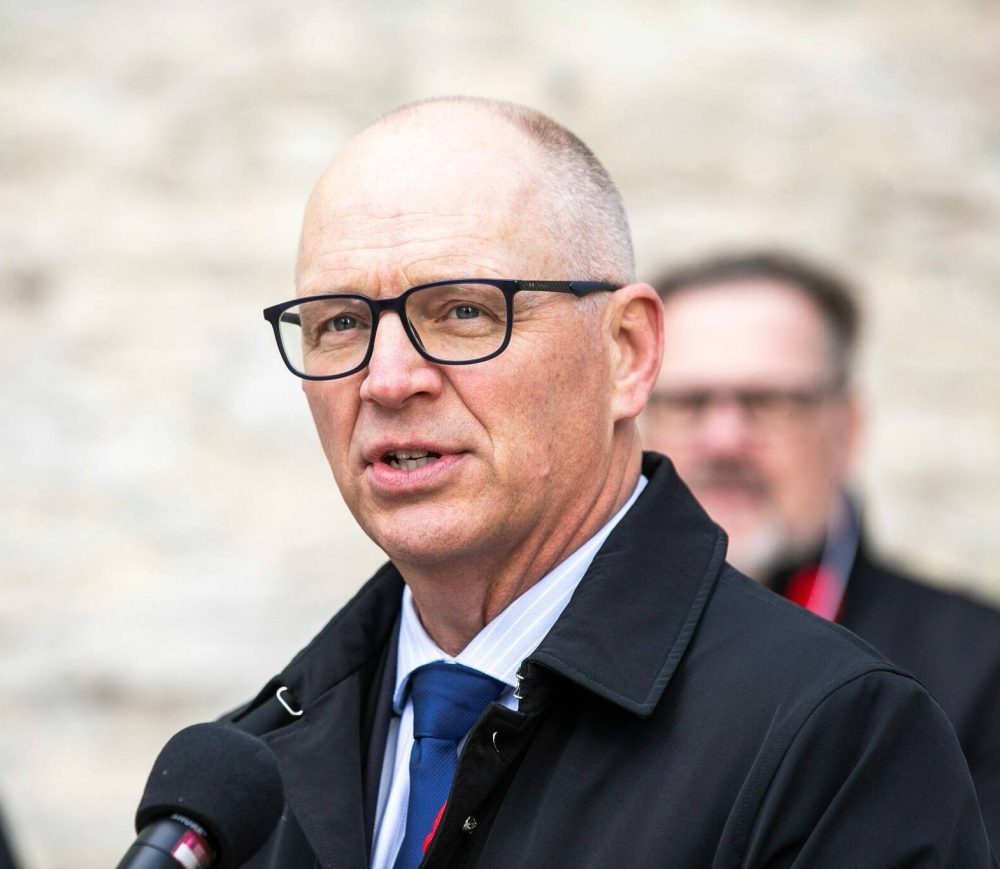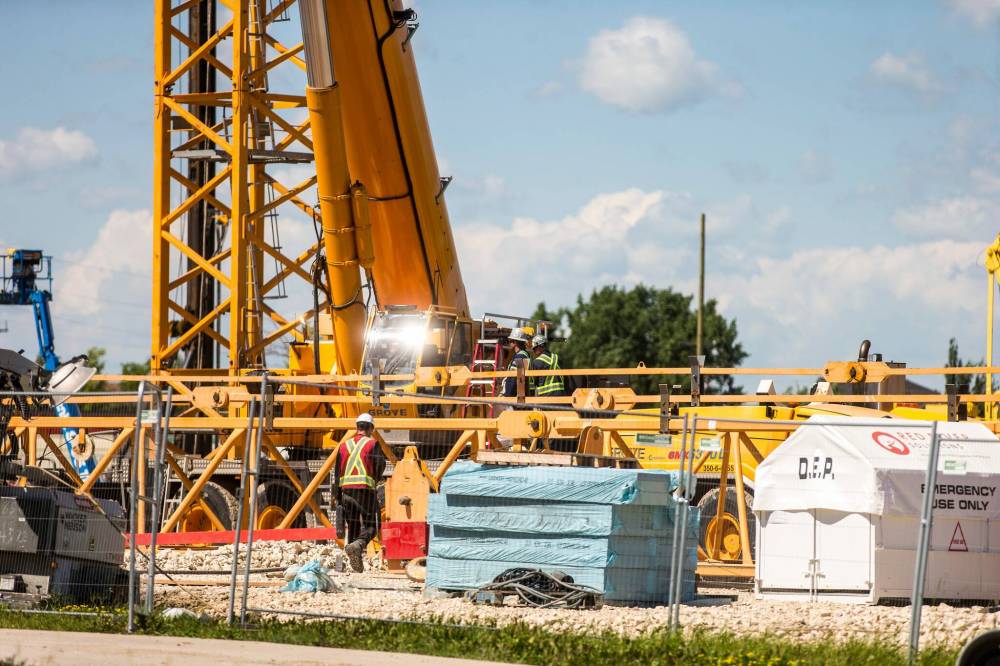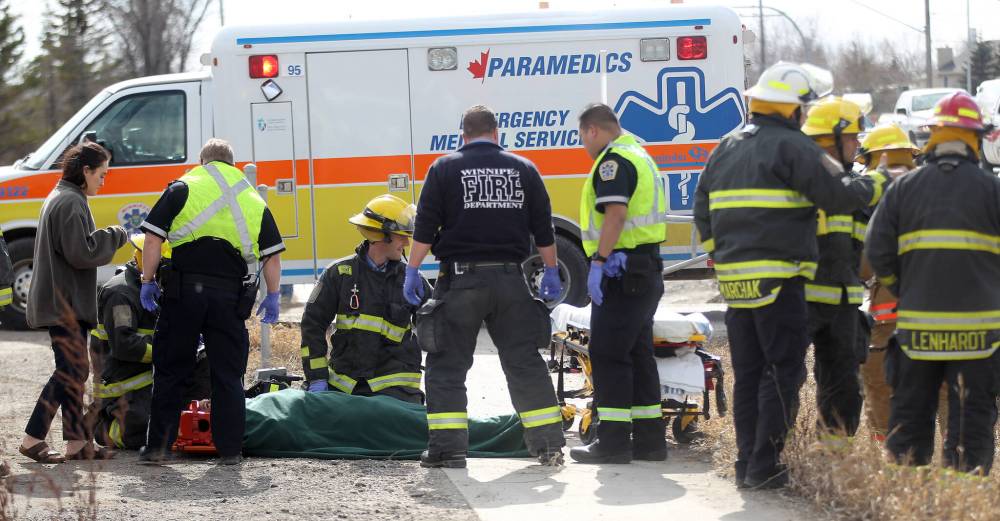Property tax hike to return to 3.5 per cent in 2026, mayor says in advance of Friday’s budget
‘Big, bold investments’ on infrastructure promised
Advertisement
Read this article for free:
or
Already have an account? Log in here »
To continue reading, please subscribe:
Monthly Digital Subscription
$0 for the first 4 weeks*
- Enjoy unlimited reading on winnipegfreepress.com
- Read the E-Edition, our digital replica newspaper
- Access News Break, our award-winning app
- Play interactive puzzles
*No charge for 4 weeks then price increases to the regular rate of $19.95 plus GST every four weeks. Offer available to new and qualified returning subscribers only. Cancel any time.
Monthly Digital Subscription
$4.99/week*
- Enjoy unlimited reading on winnipegfreepress.com
- Read the E-Edition, our digital replica newspaper
- Access News Break, our award-winning app
- Play interactive puzzles
*Billed as $19.95 plus GST every four weeks. Cancel any time.
To continue reading, please subscribe:
Add Free Press access to your Brandon Sun subscription for only an additional
$1 for the first 4 weeks*
*Your next subscription payment will increase by $1.00 and you will be charged $16.99 plus GST for four weeks. After four weeks, your payment will increase to $23.99 plus GST every four weeks.
Read unlimited articles for free today:
or
Already have an account? Log in here »
Winnipeggers appear set to pay a 3.5 per cent property tax hike in 2026, as Mayor Scott Gillingham returns to matching the rate increase on which he campaigned.
In an interview Thursday, the mayor confirmed that levy will be proposed within the preliminary budget released on Friday.
“We’re going to go back to (a) 3.5 per cent property tax increase in this budget. I committed to doing that and it will be reflected in the budget,” said Gillingham.

MIKAELA MACKENZIE / FREE PRESS FILES
Winnipeg Mayor Scott Gillingham: “Big, bold investments in our infrastructure.”
City council had approved a 5.95 per cent property tax hike this year, which translated to $121 annually for a sample single-family home assessed at $371,000.
That marked the city’s highest one-year increase since the 1990s, which the mayor said was necessary to balance the budget without cutting critical services.
On April 1, additional city fee hikes took effect, raising concerns about affordability. On that day, the annual per-home garbage fee rose to $254 for 2025 (prorated to $190.50) from $93, while the typical home’s sewer rate increased by $18.67 per month, or $168.03 for the rest of the year.
Despite that, the mayor stressed Winnipeg remains an affordable place to live.
“After we introduce the budget (Friday), Winnipeg will still have the lowest municipal property taxes of any major city in Canada.”
“After we introduce the budget (Friday), Winnipeg will still have the lowest municipal property taxes of any major city in Canada,” said Gillingham.
When the city released its 2025 budget, the mayor said he intended to return to 3.5 per cent annual property tax hikes. However, he warned that goal would be affected by ongoing demands to fund major infrastructure projects, including the multibillion-dollar upgrade to the sewage treatment plant on Main Street.
On Thursday, the mayor said affordability will be a key focus of the 2026 budget, as will infrastructure, including road renewal and the $3-billion sewage treatment plant upgrade.
“You’ll see significant investments. Big, bold investments in our infrastructure,” he said.

MIKAELA MACKENZIE / FREE PRESS FILES
Winnipeg Mayor Scott Gillingham says funding major infrastructure projects such as the multibillion-dollar upgrade to Winnipeg’s North End sewage treatment plant can affect future property tax increases.
He said Winnipeggers can also expect to see the addition of firefighters and paramedics, though he declined to reveal how many positions would be added.
“Our city has grown by 80,000 people in the last four years and that’s putting pressure on emergency services response times. And… the call volume of our emergency services continues to be high, putting pressure on our front-line men and women who serve as paramedics, firefighters and police,” said Gillingham.
The mayor said the new hires are partly related to a surge in Winnipeg Fire Paramedic Service overtime in recent years.
“Finding a way to reduce the overtime costs while making investments is something that’s reflected in this budget,” he said.
“Our city has grown by 80,000 people in the last four years and that’s putting pressure on emergency services response times.”
City council’s finance committee approved a $3-million budget overrun for the Winnipeg Fire Paramedic Service’s 2025 budget on Monday, which was blamed largely on high overtime and Workers Compensation Board costs.
WFPS overtime costs are currently expected to come in nearly $7 million over budget for this year, though savings on salaries and other costs, increased revenues and some provincial funding will offset that spending.
Coun. Jeff Browaty, chairman of finance, said the budget will strive to keep life affordable for Winnipeggers, even as the municipal government itself also struggles with rising costs.
“We realize that the cost of everything is continuing to escalate and households are stretched to the limit. Our costs for so many things have skyrocketed as well, so (that) makes it challenging. Our costs for snow removal, our costs to buy a new fire truck or a new truck for our parks staff… have just ballooned in recent years,” said Browaty.

Phil Hossack / Free Press Files
Winnipeg Mayor Scott Gillingham says Winnipeggers can expect to see the addition of firefighters and paramedics in this year’s budget.
While he said the city is always seeking ways to operate more efficiently, the councillor indicated significant service cuts won’t be part of the budget.
“We’re a growing city, so I think it would be challenging to cut back on the services that Winnipeggers count on and depend on,” said Browaty.
After the budget is released on Friday, a series of public meetings will be held for city committees to debate the financial plan and hear feedback on it. City council will cast its final budget vote on Dec. 17.
joyanne.pursaga@freepress.mb.ca
X: @joyanne_pursaga

Joyanne is city hall reporter for the Winnipeg Free Press. A reporter since 2004, she began covering politics exclusively in 2012, writing on city hall and the Manitoba Legislature for the Winnipeg Sun before joining the Free Press in early 2020. Read more about Joyanne.
Every piece of reporting Joyanne produces is reviewed by an editing team before it is posted online or published in print — part of the Free Press‘s tradition, since 1872, of producing reliable independent journalism. Read more about Free Press’s history and mandate, and learn how our newsroom operates.
Our newsroom depends on a growing audience of readers to power our journalism. If you are not a paid reader, please consider becoming a subscriber.
Our newsroom depends on its audience of readers to power our journalism. Thank you for your support.







